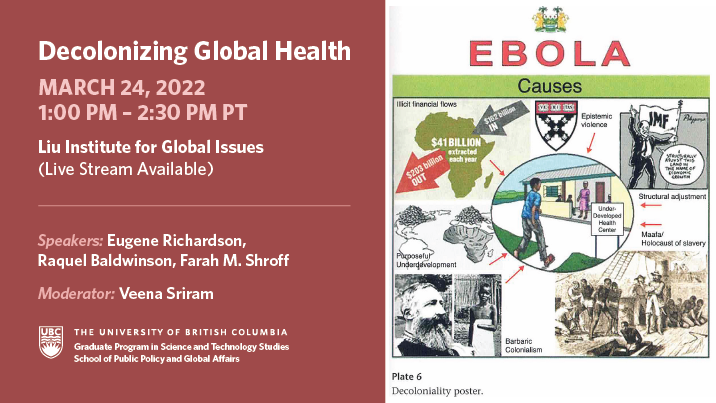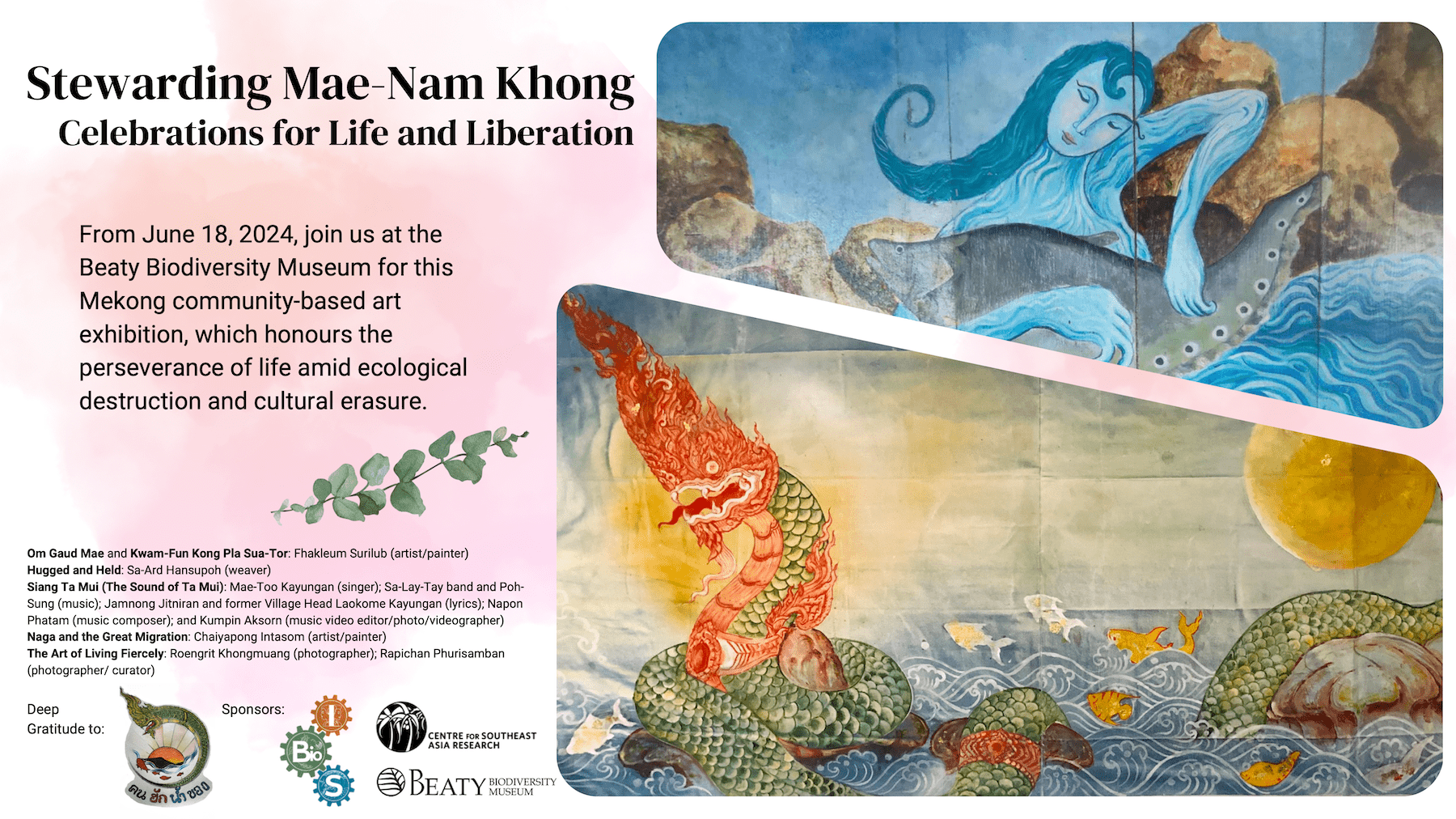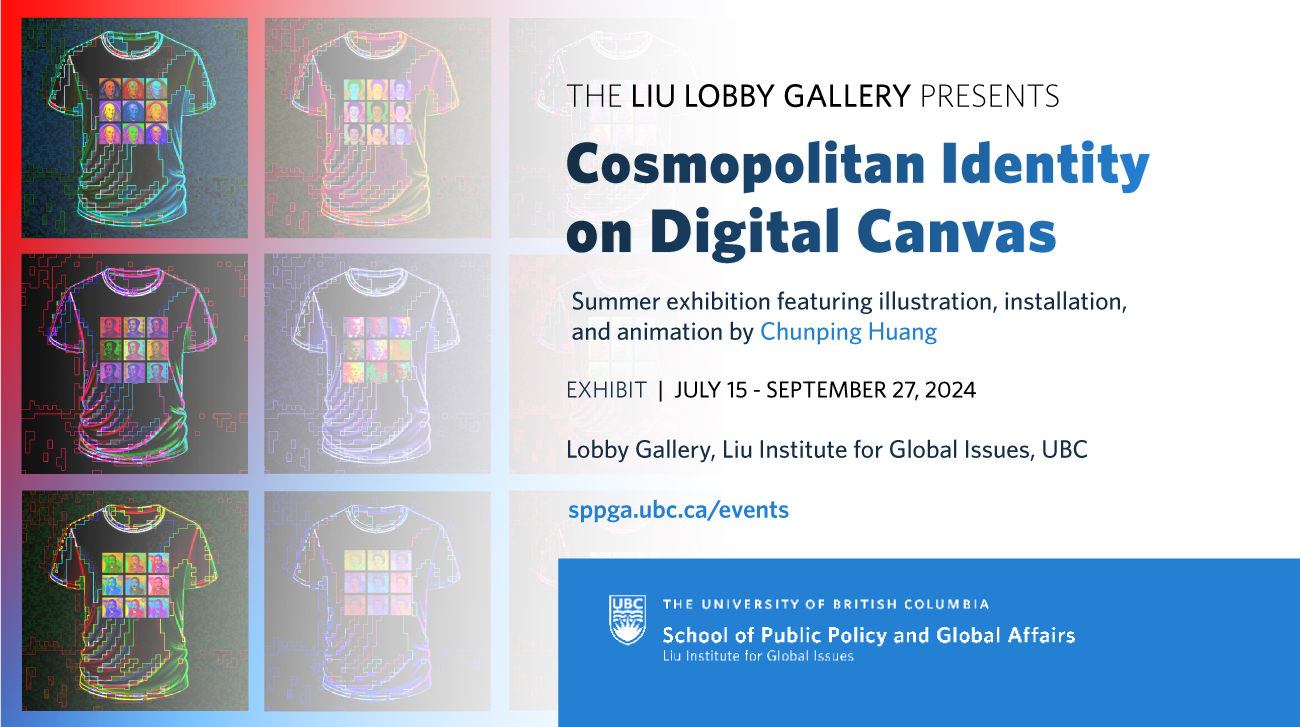

Venue: xʷθəθiqətəm (The Place of Many Trees), Liu Institute for Global Issues, with live stream available
This talk will take place on the traditional, ancestral, and unceded territory of the šxʷməθkʷəy̓əmaɁɬ (Musqueam), səl̓ilwətaɁɬ (Tsleil Waututh), and skwxwú7mesh (Squamish) peoples.
Please register in advance for either in-person or live stream tickets.
Lunch is available for in-person guests.
Abimbola, Asthana, Montenegro et al. (2021) have contended that the COVID-19 pandemic, Black Lives Matter, and the Women in Global Health movement have brought renewed urgency to ongoing calls to decolonize global health. Yet decolonizing global health is a task of staggering complexity. As Abimbola and Pai (2020) have theorized: “global health is a discipline that holds within itself a deep contradiction—global health was birthed in supremacy, but its mission is to reduce or eliminate inequities globally.” Still, for all the task’s complexity, Abimbola and Pai insist that we must strive to “rise up and live up” to the demands of a post-colonial global health mission.
Join Prof. Veena Sriram in conversation with Eugene Richardson, Farah Shroff, and Raquel Baldwinson as each panelist discusses a distinct approach to decolonizing global health. Drawing on his book, Epidemic Illusions: On the Coloniality of Global Public Health (MIT Press, 2020), Eugene Richardson will assert that public health practices—from epidemiological modeling and out-break containment to Big Data and causal inference—play an essential role in perpetuating a range of global inequities.
Raquel Baldwinson will argue that the ordinary ways in which we talk about “global health” tend to work against decolonization efforts. Focusing on examples of public discourse across a range of Global North settings—including media, marketing, scholarship, and policy—Baldwinson will demonstrate how an underlying colonial grammar insinuates real coloniality.
Farah Shroff will advocate an epistemic shift in global health praxis – focusing, in particular, on the imperative for anti-racist decolonial approaches to well-being. Shroff will attend especially to the promises and possibilities of international indigenous systems of health promotion and disease prevention.
Welcome remarks are provided by Rutu Patel, student in the Master of Public Policy and Global Affairs program, School of Public Policy and Global Affairs, UBC.


Speakers’ Bios:




Baldwinson’s dissertation, “Global Health Doubt: Belief and the Grammars of Global Health,” tells the story of how, at the turn of the new millennium, societies were presented with a new grammar for social action called “global health”—but publics did not “believe” in it. Baldwinson theorizes that, just as global climate change efforts have been obstructed by a condition of denial, global health efforts have been obstructed by a condition of doubt. Baldwinson is also the author of the forthcoming work, “Global Health Wars: A Rhetorical Review of Global Health Critique.”


Dr. Shroff’s research coheres around the goals of envisioning and developing “Health for All.” Her main areas of research are integrative health approaches and social/environmental justice from a feminist anti-racism lens. She is a women’s health researcher and educator with a focus on gender equity, reproduction, midwifery, HIV, sexuality, and mental well-being. Unusual in global health work, Dr. Shroff is also known for her promotion and practice of Ayurveda, yoga, meditation, nature immersion (“Shinrin-yoku” in Japan and “salim yok” in Korea), and other natural forms of health promotion and disease prevention. Dr. Shroff is regularly featured in the media and had a television spot called “Dr. Shroff Talks about Holistic Health.” The CBC/Radio-Canada currently features Dr. Shroff as their public health expert.
Find a copy of Eugene Richardson’s book, Epidemic Illusions: On the Coloniality of Global Public Health (MIT Press, 2020), on MIT Press.
Co-hosted by: The Graduate Program in Science and Technology Studies; The School of Public Policy and Global Affairs, UBC

